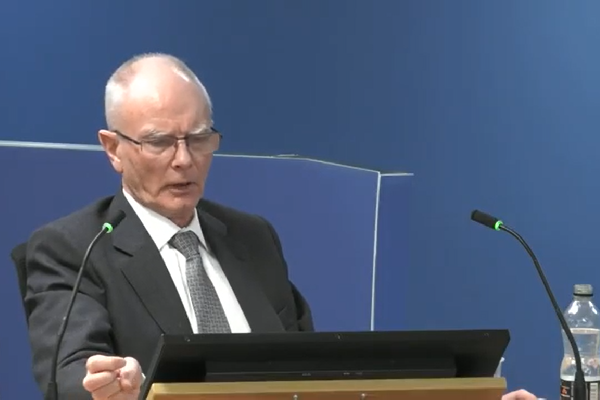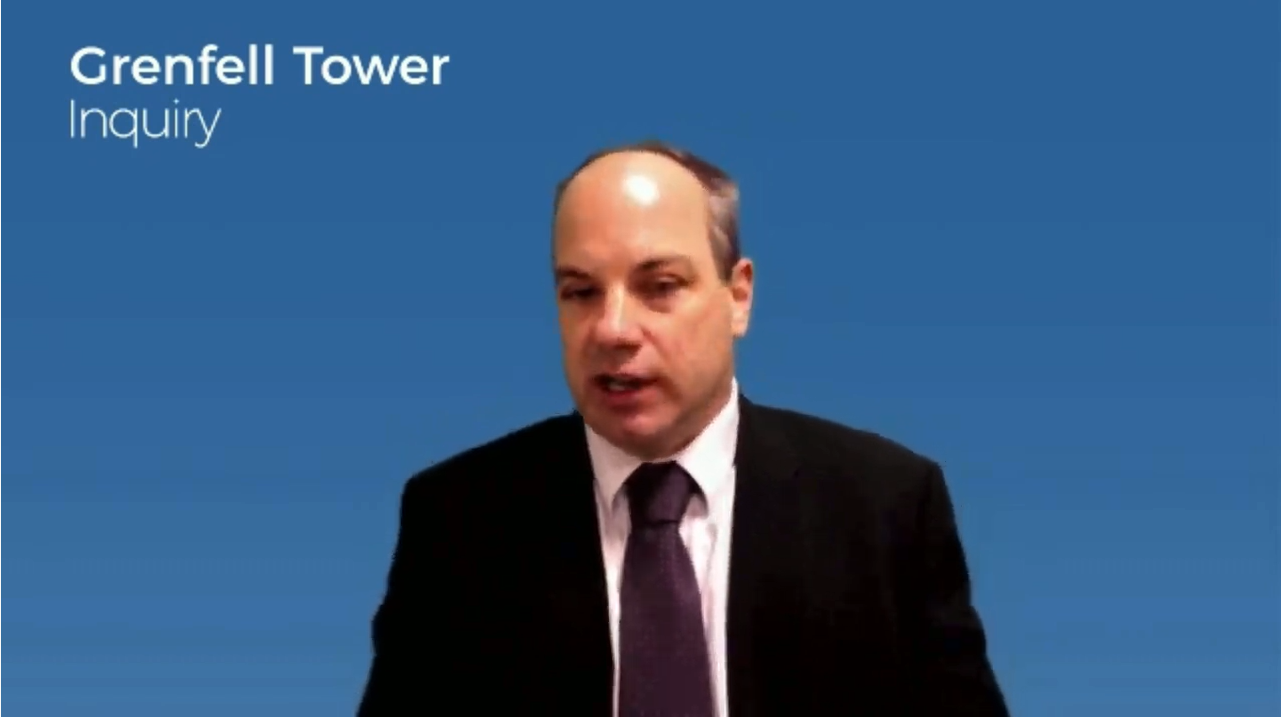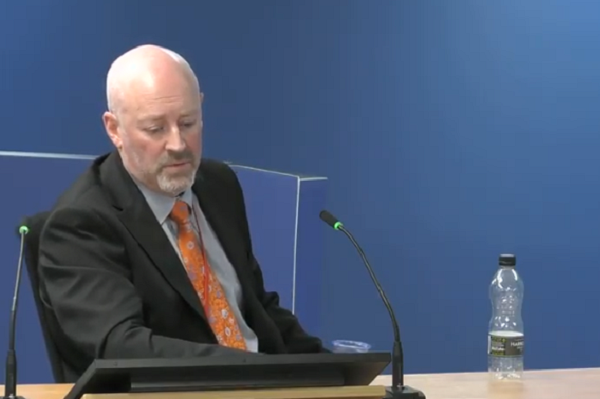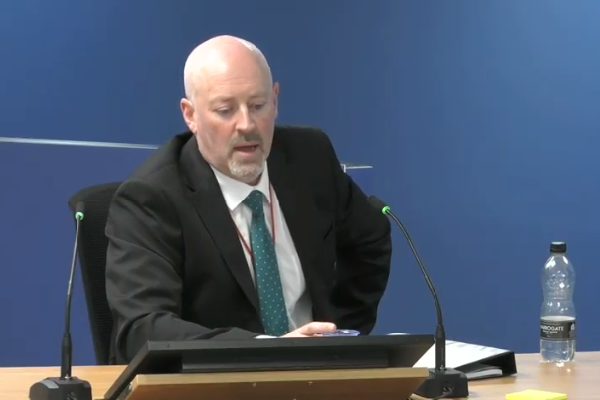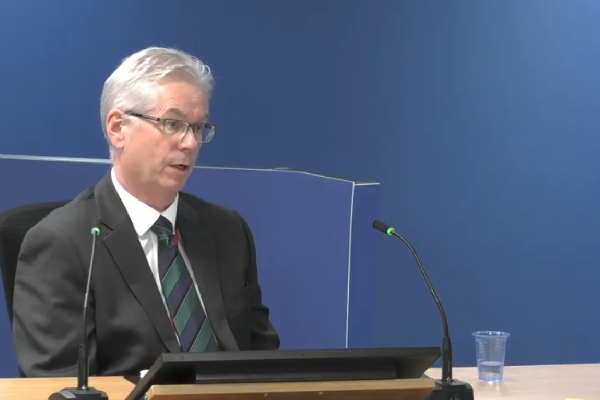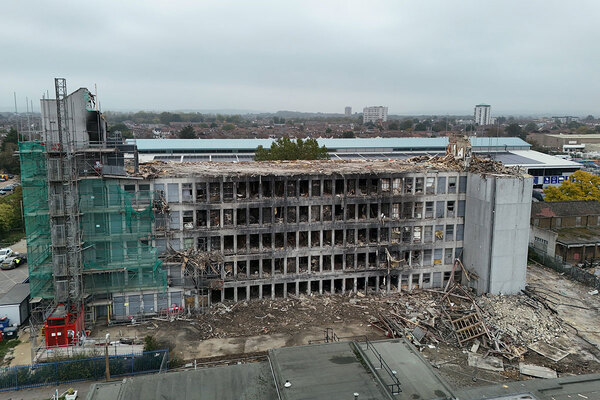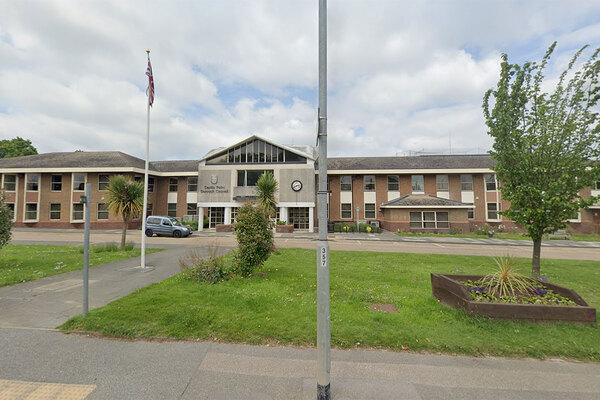LABC did not correct ‘misleading’ Kingspan certificate despite multiple warnings, Grenfell Inquiry hears
Local Authority Building Control (LABC) did not correct a “misleading” certificate stating Kingspan’s combustible insulation could be used on high rises despite repeated warnings about its accuracy, the Grenfell Tower Inquiry heard today.
The inquiry also heard the body, a membership organisation representing council building control inspectors, sought commercial sponsorship deals with the insulation manufacturer and relied on it to help write industry guidance which was distributed to its members.
Kingspan’s K15 insulation ended up being widely used on high rises around the UK, including a small proportion on Grenfell Tower. Many of these blocks are currently being remediated.
The inquiry has previously heard that Kingspan promoted its insulation as suitable for use generally on tall buildings based on a single test from 2005 which should only have permitted its use in one specific system.
Nonetheless, LABC produced a 2009 certificate which said the combustible plastic foam insulation boards “can be considered a material of limited combustibility” and was therefore “suitable for use” on tall buildings.
Both Kingspan and LABC witnesses have since accepted that this statement was inaccurate and misleading.
Today, the inquiry saw that concerns were repeatedly raised with LABC about the certificates between 2009 and 2014, but it failed to act to amend it.
During the same period, it was also seeking commercial sponsorship from Kingspan, with staff emails referring to “bonuses” they would receive from securing business from the firm.
The first warning came in 2009 when rival manufacturer Rockwool wrote to LABC querying the claims which had been repeated in a Kingspan press release.
The letter said the suggestion that it was limited combustibility was “of serious concern” and the “endorsement and promotion of a combustible product… as a material of limited combustibility could lead to confusion for potential clients”.
The letter was copied to senior government official Brian Martin.
A follow-up letter sent a month later warned that “fire classification claims on construction products is extremely important with respect to both life safety and property protection”.
Barry Turner, head of policy at LABC, told the inquiry today that he “did not recall” receiving the letter.
“At this point, can you explain why you didn’t respond promptly to this letter, which is raising questions about life safety and property protection in relation to claims that have been made about LABC statements?” asked counsel to the inquiry Kate Grange QC.
“No,” replied Mr Turner.
Mr Turner eventually responded to Rockwool months later in February 2010, writing that “it is not for us to explain to third parties our reasons or justifications”, adding “if you have issues with claims made by a competitor I must ask you deal directly with the company making those claims”.
“It appears that you’re not only agreeing with [the certificate’s] assessment of K15 but you are in fact defending the technically incorrect claim made on that certificate. Is that right?” asked Ms Grange.
“I put my trust in others that they had done it correctly,” replied Mr Turner.
“Did you appreciate the public safety ramifications of being so dismissive to Rockwool’s concerns?” asked Ms Grange.
“If I had appreciated that I wouldn’t have dealt with it in the way that I did,” said Mr Turner.
The LABC published a further ‘Registered Detail’ document for K15 in 2013 which repeated the misleading claims in the certificate and added an appendix which Mr Turner accepted was “cut and pasted” from Kingspan.
This included further assurance that the combustible material could be used on high rises and diagrams showing build-ups it had never been tested in.
This was part of a run of 10 certificates LABC provided the firm, for which it invoiced £10,156. An email from another staff member, referring to securing the deal, wrote: “If we get this one right it will be good for the bonus.”
“There appears to be a clear financial benefit to the employees of LABC if Kingspan signs up to the registered detail scheme. Do you agree?” said Ms Grange.
“I would suggest that that was a flippant comment, which is now being misconstrued and I do not agree. To my knowledge, employees did not get any bonus whatsoever based on these details,” said Mr Turner.
Following the publication of the certificate, LABC was contacted by the National House Building Council – a large private building control inspector – in July 2014 with a warning that K15 was being “accepted in buildings over 18m in height” despite being “by its nature combustible”.
A facade contractor also emailed the same month to warn that LABC’s certificate showed K15 being used on systems where it had never been successfully tested.
“Did it ever occur to you that the LABC certificates might have supported and possibly facilitated the claims made by Kingspan in respect of suitability for use over 18 metres?” asked Ms Grange.
“No,” replied Mr Turner.
“So you didn’t think back at all to the correspondence you’d had from Rockwool?” asked Ms Grange.
“Obviously not,” replied Mr Turner.
Earlier, the inquiry had seen that LABC sought a ‘business sponsorship package’ from Kingspan between 2009 and 2010 for £12,500.
LABC promised “benefits” of the sponsorship including “direct outreach” to 4,000 surveyors and 3,000 special customers, which would “provide an indirect route to sales through referrals”.
“Were you ever involved in any discussion about whether such business sponsorship packages risked prejudicing LABC’s independence from manufacturers?” asked Ms Grange.
“It was a difficult line for us to follow… because we had a need for income to be able to promote local authority building control in a competitive market,” said Mr Taylor.
“There needed to be income from somewhere. It wasn’t provided by government, and it certainly wasn’t provided by local authorities. And so this was one of many methods by which some form of income could be generated in order to promote those services.”
“Did that sponsorship involvement with Kingspan impact on the LABCs decision to investigate the concerns which had been raised by third parties about the K15 certificates?” asked Ms Grange.
“No, because I didn’t tie the two together. I was not involved in this discussion or this sponsorship discussion,” said Mr Turner.
The inquiry also saw that LABC produced technical documents with the support of Kingspan and even included the manufacturer’s logo on them – prompting complaints from others in the industry. “Surely LABC have to be neutral and be seen to be neutral… This kind of sponsorship is not something we’ve ever seen before,” wrote one industry figure in February 2009.
LABC did not respond to this email until December, when Mr Turner said LABC “reserve the right to engage with industry”, but promised to “take your concerns into account should we produce guidance with industry assistance in the future”.
However, further emails show the LABC continuing to rely on Kingspan’s advice in the production of new guidance after this date.
“How did that fit with what you’d said… that you were going to take his concerns into account should you produce guidance with industry again in the future?” asked Ms Grange.
“It was an avenue of availability… it was easier to work with those people that came to you rather than go searching for others,” said Mr Turner. “At the time, shall we say, it was the route of least resistance.”
On Monday lawyers for survivors and bereaved described LABC as “a spineless members’ organisation”, which had failed to “investigate the accuracy of these approvals even when alerted to sharp practice”.
The inquiry continues.
Sign up for our weekly Grenfell Inquiry newsletter
Each week we send out a newsletter rounding up the key news from the Grenfell Inquiry, along with the headlines from the week
Already have an account? Click here to manage your newsletters
